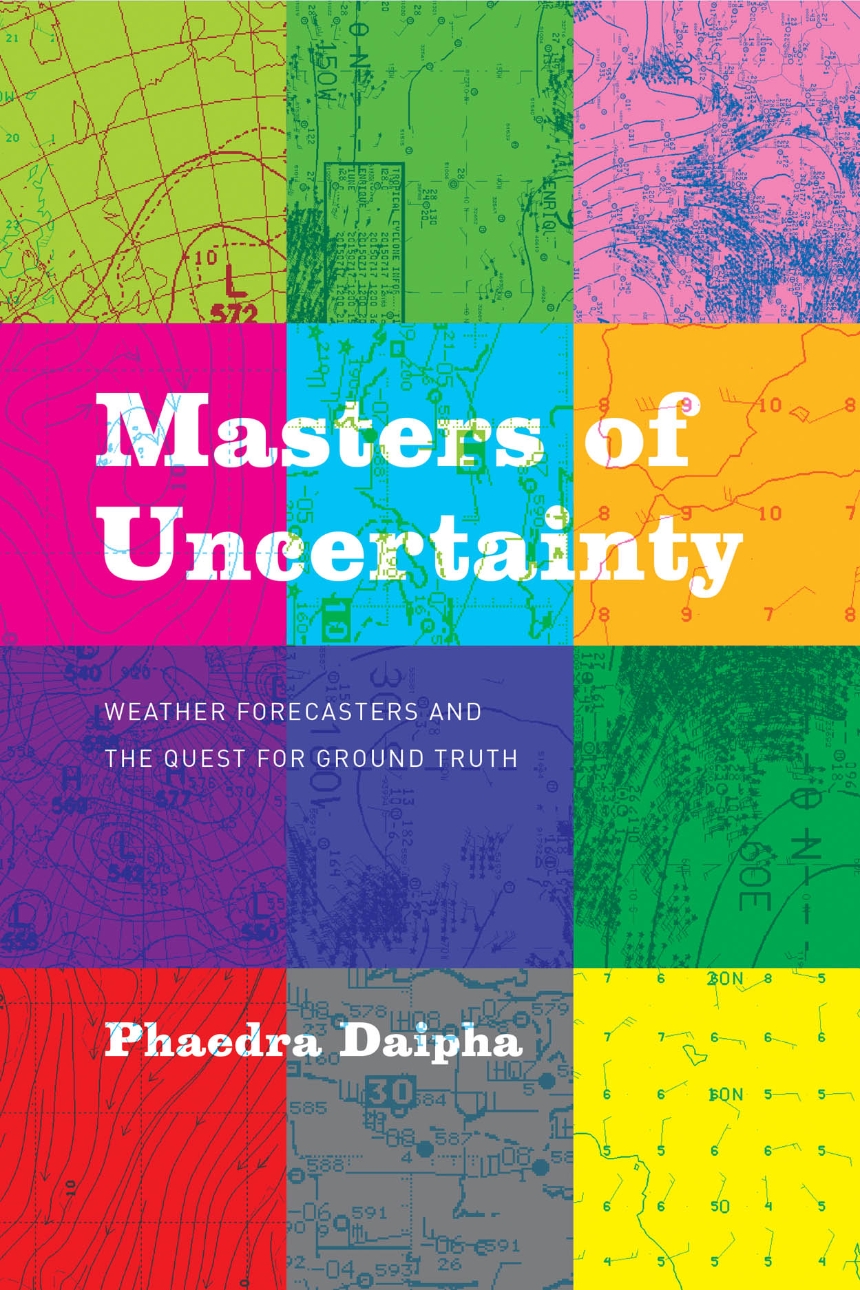Masters of Uncertainty
Weather Forecasters and the Quest for Ground Truth
Masters of Uncertainty
Weather Forecasters and the Quest for Ground Truth
In Masters of Uncertainty, Phaedra Daipha develops a new conceptual framework for the process of decision making, after spending years immersed in the life of a northeastern office of the National Weather Service. Arguing that predicting the weather will always be more craft than science, Daipha shows how forecasters have made a virtue of the unpredictability of the weather. Impressive data infrastructures and powerful computer models are still only a substitute for the real thing outside, and so forecasters also enlist improvisational collage techniques and an omnivorous appetite for information to create a locally meaningful forecast on their computer screens. Intent on capturing decision making in action, Daipha takes the reader through engrossing firsthand accounts of several forecasting episodes (hits and misses) and offers a rare fly-on-the-wall insight into the process and challenges of producing meteorological predictions come rain or come shine. Combining rich detail with lucid argument, Masters of Uncertainty advances a theory of decision making that foregrounds the pragmatic and situated nature of expert cognition and casts into new light how we make decisions in the digital age.
Read an excerpt.
280 pages | 1 halftone, 1 table | 6 x 9 | © 2015
Anthropology: Cultural and Social Anthropology
Cognitive Science: General Works
Earth Sciences: Meteorology
Sociology: Collective Behavior, Mass Communication, Formal and Complex Organizations, General Sociology, Occupations, Professions, Work, Theory and Sociology of Knowledge
Reviews
Table of Contents
1 The Weather Prediction Enterprise
2 Working the Weather: A Shift in the Life of a Weather Forecaster
3 Distilling Complexity: Atmospheric Indeterminacy and the Culture of Disciplined Improvisation
4 Managing Risk: The Trials and Tribulations of Hazardous Weather Forecasting
5 Anticipating the Future: Temporal Regimes of Meteorological Decision Making
6 Whose Weather Is It Anyway? From the Production to the Consumption of Decisions
7 Toward a Sociology of Decision Making
Acknowledgments
Notes
References Cited
Index
Awards
ASA Communication, Information Technologies, and Media Sociology Section (CITAMS): Best Book Award
Won
